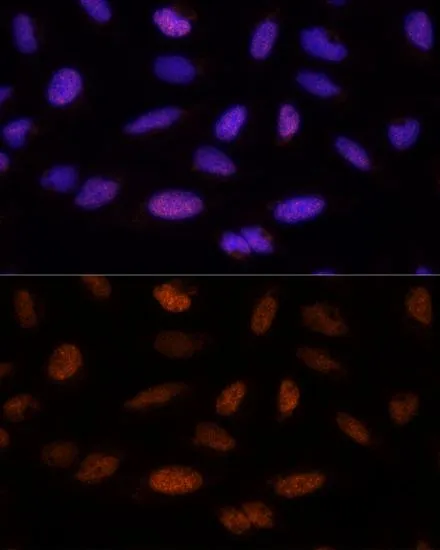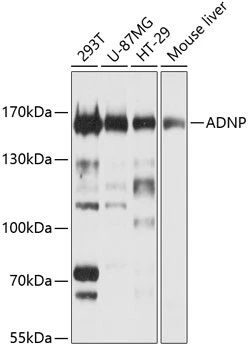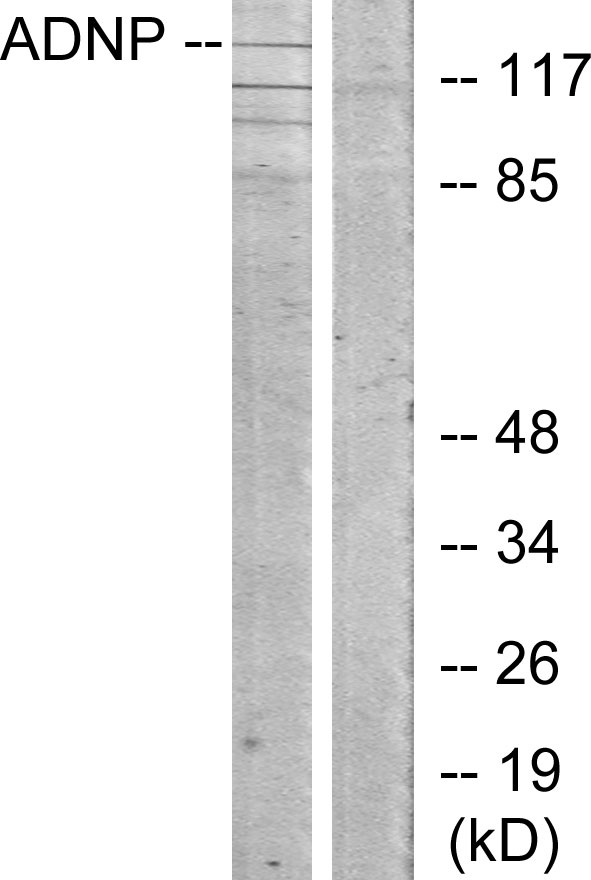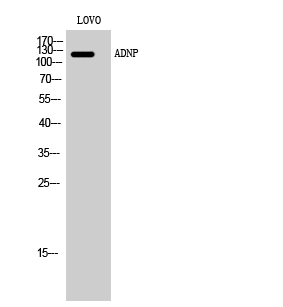
ICC/IF analysis of U2OS cells using GTX17559 ADNP antibody. Blue : DAPI Dilution : 1:100
ADNP antibody
GTX17559
ApplicationsImmunoFluorescence, Western Blot, ImmunoCytoChemistry
Product group Antibodies
ReactivityHuman, Mouse
TargetADNP
Overview
- SupplierGeneTex
- Product NameADNP antibody
- Delivery Days Customer9
- Application Supplier NoteWB: 1:500 - 1:2000. ICC/IF: 1:50 - 1:100. *Optimal dilutions/concentrations should be determined by the researcher.Not tested in other applications.
- ApplicationsImmunoFluorescence, Western Blot, ImmunoCytoChemistry
- CertificationResearch Use Only
- ClonalityPolyclonal
- ConjugateUnconjugated
- Gene ID23394
- Target nameADNP
- Target descriptionactivity dependent neuroprotector homeobox
- Target synonymsADNP1, HVDAS, MRD28, activity-dependent neuroprotector homeobox protein, ADNP homeobox 1, activity-dependent neuroprotective protein, activity-dependent neuroprotector
- HostRabbit
- IsotypeIgG
- Protein IDQ9H2P0
- Protein NameActivity-dependent neuroprotector homeobox protein
- Scientific DescriptionVasoactive intestinal peptide is a neuroprotective factor that has a stimulatory effect on the growth of some tumor cells and an inhibitory effect on others. This gene encodes a protein that is upregulated by vasoactive intestinal peptide and may be involved in its stimulatory effect on certain tumor cells. The encoded protein contains one homeobox and nine zinc finger domains, suggesting that it functions as a transcription factor. This gene is also upregulated in normal proliferative tissues. Finally, the encoded protein may increase the viability of certain cell types through modulation of p53 activity. Alternatively spliced transcript variants encoding the same protein have been described. [provided by RefSeq, Jul 2008]
- ReactivityHuman, Mouse
- Storage Instruction-20°C or -80°C,2°C to 8°C
- UNSPSC41116161







